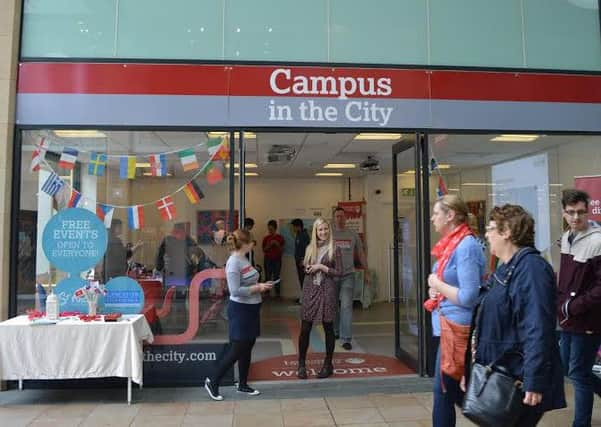'˜Pop-up neighbourhood' aims to educate Lancaster shoppers


On Thursday May 12, a pop-up ‘neighbourhood’ will be installed for one day only which will allow local residents to find out about some of the factors that can impact on the health of a community.
Shoppers in the centre of Lancaster have a chance to find out about good health and the health inequalities that affect our north west region, including what could be contributing to them, thanks to a key university initiative.
Advertisement
Hide AdAdvertisement
Hide AdPublic engagement facilitator at NIHR Collaboration for Leadership in Applied Health Research and Care North West Coast (CLAHRC NWC), Jenny Irvine, said: “There are pockets in the north west where people’s health compares poorly to other pockets in the same region. This is a great opportunity for the public to find out about the work we are doing to tackle these inequalities and improve health. We want people to come and get involved in what we’re doing too. It’s going to be a really fun day with talks and activities for people to try with quizzes, games, a tombola and an area for children. There’s also a chance to win sweet treats or a summer Lancaster University gym membership.”
A huge walk-on snakes and ladders game will take centre stage, co-created with a young person’s group in the region.
This is being funded by the Research Council UK and will be made available afterwards for partner schools across the region to use in classes and summer schools to teach children about health inequalities and what causes them.
This day is part of the Lancaster University Campus in the City annual spring event in which the university takes over a former shop in St Nicholas Arcades in the heart of Lancaster to showcase some of its research and activities.
Advertisement
Hide AdAdvertisement
Hide AdThe pop-up neighbourhood is a partnership between the NIHR CLAHRC NWC and Lancaster University’s Faculty of Health and Medicine’s Public Health team.
Social and economic factors like income, education and where people live have huge impacts on their health. Research teams, funded by the National Institute for Health Research, are looking at how and why this happens and how people’s health, including their choices and behaviours, can be shaped by wider forces out of their control.
Health inequalities are preventable and unfair differences in health status between groups, populations or individuals. They exist because of unequal distributions of social, environmental and economic conditions within societies, which affect how likely people are to become ill and how able they are to prevent sickness as well as how easily they can access the right treatments.
Campus in the City will host events at its shop in St Nicholas Arcades until May 21.